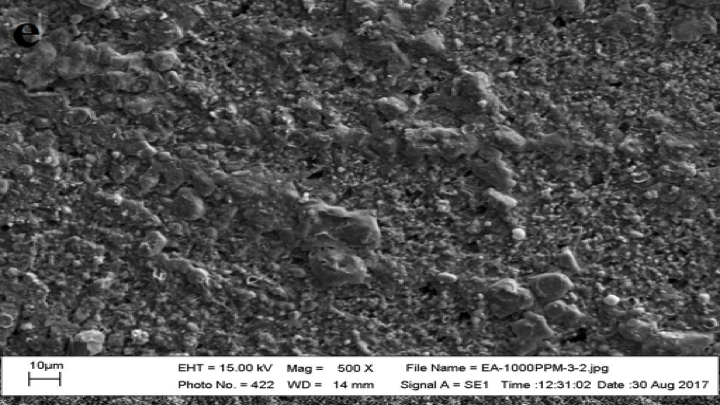 |
|
Extract of the stems of Equisetum arvense was studied as a natural corrosion inhibitor (NCI) in synthetic seawater exposing samples of copper. To determine the protection of the metal by the NCI, electrochemical tests using potentiodynamic polarization curves, electrochemical impedance spectroscopy and linear polarization resistance were performed at room temperature. The morphological characterization of the material with and without NCI was carried out by scanning electron microscopy. The chemical composition of the NCI was determined by Fourier transform-infrared spectroscopy (FTIR) and gas chromatography coupled to mass spectrometry (GC-MS). The results showed that Equisetum arvense acts as a mixed-type NCI, achieving an inhibition efficiency of 53.78% when using 1000 ppm of NCI. From EIS the charge transfer resistance increased in the first 21 h, obtaining an inhibition efficiency of 87.5%. LPR results showed similar behavior than EIS at the same concentration. FTIR revealed that the chemical structure of the compounds of methanol extract of Equisetum arvense have functional groups such as: -OH, C-H, C=O and C-O, whereas GC-MS showed that eight compounds are present in the NCI.
Keywords: Green corrosion inhibitor, Equisetum arvense, copper, synthetic seawater.
|
|
 |

